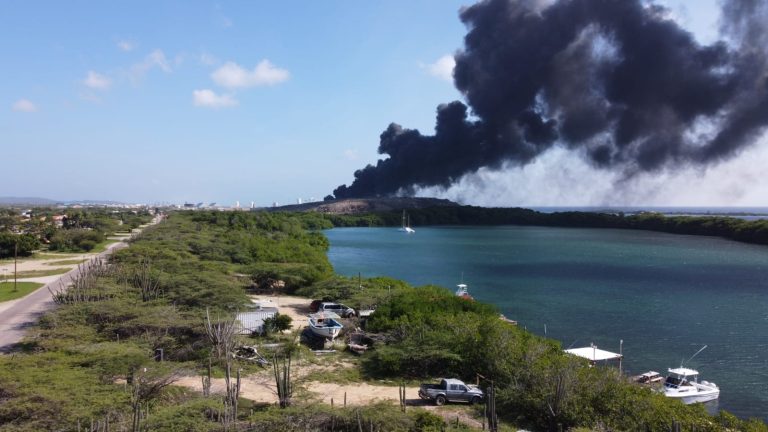Aruba & the Netherlands Antilles has adopted the Cape Town Convention and the Aircraft Equipment Protocol
Following recommendations made by Gomez & Bikker’s Aviation Finance Practice Group www.gobiklaw.com, on 17 May 2010 the Government of Aruba and the Netherlands tilles has ratified and implemented the Cape Town Convention on International Interests in Mobile Equipment and the Aircraft Protocol thereto. Jointly, these two instruments are generally referred to as the Cape Town Convention. The Convention and Protocol will enter into force on 1 September 2010. The decision to join the Cape Town Convention was taken by the Government to further diversify the national economy.
The adoption of the Cape Town Convention treaty completes the success of the existing aircraft registration laws and the modern aviation financing legislation that Aruba already has in place. Unlike many other jurisdictions that are currently starting to draft the required domestic aviation regulations, for many years Aruba has all the flight safety-, civil- and corporate legislation available. In addition, Aruba has successfully passed the ICAO audit, maintaining its Category 1 status, in 2009. All this encourages the foreign aircraft owners, lessors, financiers and operators to register their aircraft and/or engines in Aruba. Besides, it goes without saying that the international financing of aircraft equipment needs an adequate fiscal regime. To meet this crucial requirement, Aruba has introduced the New Fiscal Framework in 2006 that has proven to be very attractive to foreign investors.
What is Cape Town Convention good for?
To put it simply, the scope and intent of the Convention are to facilitate the acquisition and financing of aircraft equipment. For this purpose the Convention is credited with a number of key objectives:
1.The Convention provides for the creation of “international interests”. This term covers national ownership rights and secured interests that owners, lessors, lessees, conditional sellers and financiers have established in aircraft objects (aircraft, aircraft engines and helicopters). The international interests can be upheld inside and outside the bankruptcy of the debtor in the Contracting States. This moment in time almost forty states have adopted the Convention. As the treaty has worldwide application, the term international interest has been created.
2.The Convention establishes the International Registry which plays a central role. True to the technological era we are living in, it is an electronic registration system fully accessible on-line (24/7). The International Registry is physically located in Ireland. It provides the holders of international interests to possibility to register certain information regarding their rights. Other interested parties may search the registration system and obtain a certificate indicating the existing international interests. The registration of an international interest has the effect of ‘perfection’ designed to give public notice of the interest and to preserve the holder’s priority. A registered international interest has priority over a subsequently registered and over an unregistered interest. This is true inside and outside the insolvency of the aircraft owner or operator.
3.In view of the principle of party autonomy, the Convention seeks to provide the creditors with an extensive range of default remedies for the enforcement of their international interests in aircraft objects including means for speedy interim relief. In Aruba the registered interests may be exercised without the necessity of judicial intervention (declaration under article 54 (2) Convention).
4.Depending of the “Declarations” made by a Contracting State under the Convention and Protocol, these instruments intend to ensure that the particular needs of the aircraft finance sector are met and to provide the banks and other financiers greater confidence when granting credit to purchase and use aircraft objects. As Aruba has opted for a strong “Declaration Package”, in practice this legal regime will decrease the credit risk. In turn, it will lower the costs of financing and leasing which benefits the borrowers, lessees and operators of (commercial and private) aircraft, engines and helicopters.
Why Aruba?
Aruba currently provides OECD- and EU-compliant fiscal legislation that can be very attractive for foreign investors. Aruba’s Directorate of Civil Aviation is: (i) ICAO certified; (ii) equipped with the right regulatory tools; (iii) very well experienced in inspecting Aruba registered aircraft which are operated abroad and in supervising that the strict requirements of the applicable national and international safety standards are met which secures the safety of the high valued aircraft objects.
The recent accession to the Cape Town Convention will further enhance Aruba’s position as an attractive jurisdiction for the registration of Aircraft in the region. This particularly makes Aruba an ideal hub for the registration and financing of aircraft, helicopters and engines to be operated in Latin-America, Central-America and the Caribbean. It also allows for a stronger presence of Aruba in the aviation markets that are located in the Eastern hemisphere and which are already taking advantage of the modern legal infrastructure that Aruba offers. For example, at present Aruba focuses on the Russian, Kazakhstan and the Middle East markets.
Why Gomez & Bikker?
Gomez & Bikker lawyers have been involved with aircraft registration and financing transactions representing clients from all over the world in Aruba for the last 20 years. Gomez & Bikker’s has advised the government in regard to the accession of Aruba to the Cape Town Convention since 2001. Its long list of international publications can be found in all leading aviation finance law and aviation industry journals. Worldwide and over the years Gomez & Bikker has provided for lectures and seminars in all mayor venues. These are just a few reasons why Gomez & Bikker Aviation Finance Practice Group is the primary legal services provider when selecting Aruba as your ‘flag of choice’ for aircraft registration and your cross border finance structures.
Gomez & Bikker Aviation Finance Practice Group
Lincoln D. Gomez – Aruba B. Patrick Honnebier – Amsterdam














